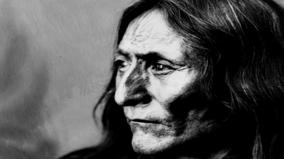Skip to content
Accessibility

New release
Coming
None
The Gift of Diabetes
2005
58 min
Leaving soon
This feature-length documentary explores the diabetes epidemic within Indigenous communities in Canada. Ojibway filmmaker Brion Whitford lives with the pain of advanced diabetes, but shunned traditional Indigenous medicine and healing practices. But as his health deteriorated, he had a change of heart. Join Brion as he connects with his culture, comes to grips with his own mortality, and tries to re-establish balance in his life.

This feature-length documentary explores the diabetes epidemic within Indigenous communities in Canada. Ojibway filmmaker Brion Whitford lives with the pain of advanced diabetes, but shunned traditional Indigenous medicine and healing practices. But as his health deteriorated, he had a change of heart. Join Brion as he connects with his culture, comes to grips with his own mortality, and tries to re-establish balance in his life.
-
directorO. Brion WhitfordJohn Paskievich
-
writerO. Brion Whitford
-
editorDon Steggles
-
producerJoe MacDonaldJohn Paskievich
-
cameraCharles KonowalClaude SavardJohn Paskievich
-
sound recordistCraig LappRuss DyckJay GarukMarvin PolanskiNorman Dugas
-
original music composerRichard Moody
-
music performerRichard Moody
-
narratorO. Brion Whitford
-
online editorTony Wytinck
-
re-recording mixerHoward Rissin
-
sound editorAnita Lubosch
-
camera assistantKarine GuaySheldon RouletteAndrea HardyJason HekeKeith Eidse
-
key gripJohn Holowka
-
logging assistantLorne Olsen
-
production managerSandra Moore
-
production coordinatorMelanie CoadMonique PerronRolande Petit
-
program administratorCyndi Forcand
-
marketing managerLeslie Stafford
-
production supervisorScott Collins
-
photo animationScott Collins
-
executive producerMichael ScottGraydon McCrea
Ages 15 to 17
School subjects
Ask students how it could be important to know their family history. Have
students interview their eldest family member and create a timeline of that
relative's life. After, have students use the information to write a poem or
short story based on their family's lineage.


















